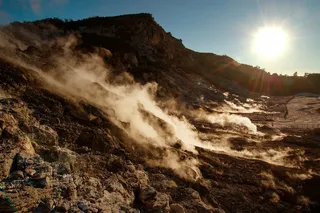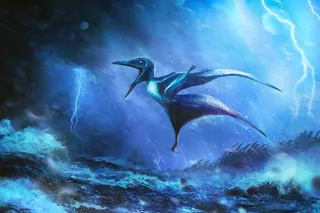Here is how I kicked off our panel today in Doha at 9:30 am local time, 7 hours ahead of U.S. East coast time:
Hi, I’m Chris Mooney and I'm a...what am I? Am I a science journalist? I have to say, prepping for this session has really only increased my uncertainty (and my anxiety) about how to answer that question. Let me first ask the room: How many of you often, or at least occasionally, refer to yourselves as "science journalists"? [less than half the hands went up.] Now: How many of you make all or most of your income from science journalism? [surprisingly, more hands went up, rather than less.] And how many of you refer to yourselves as "science bloggers"? [relatively few hands went up.] And how many of you make most of your income from science blogging? [even fewer hands up.] So clearly, we have a ...













